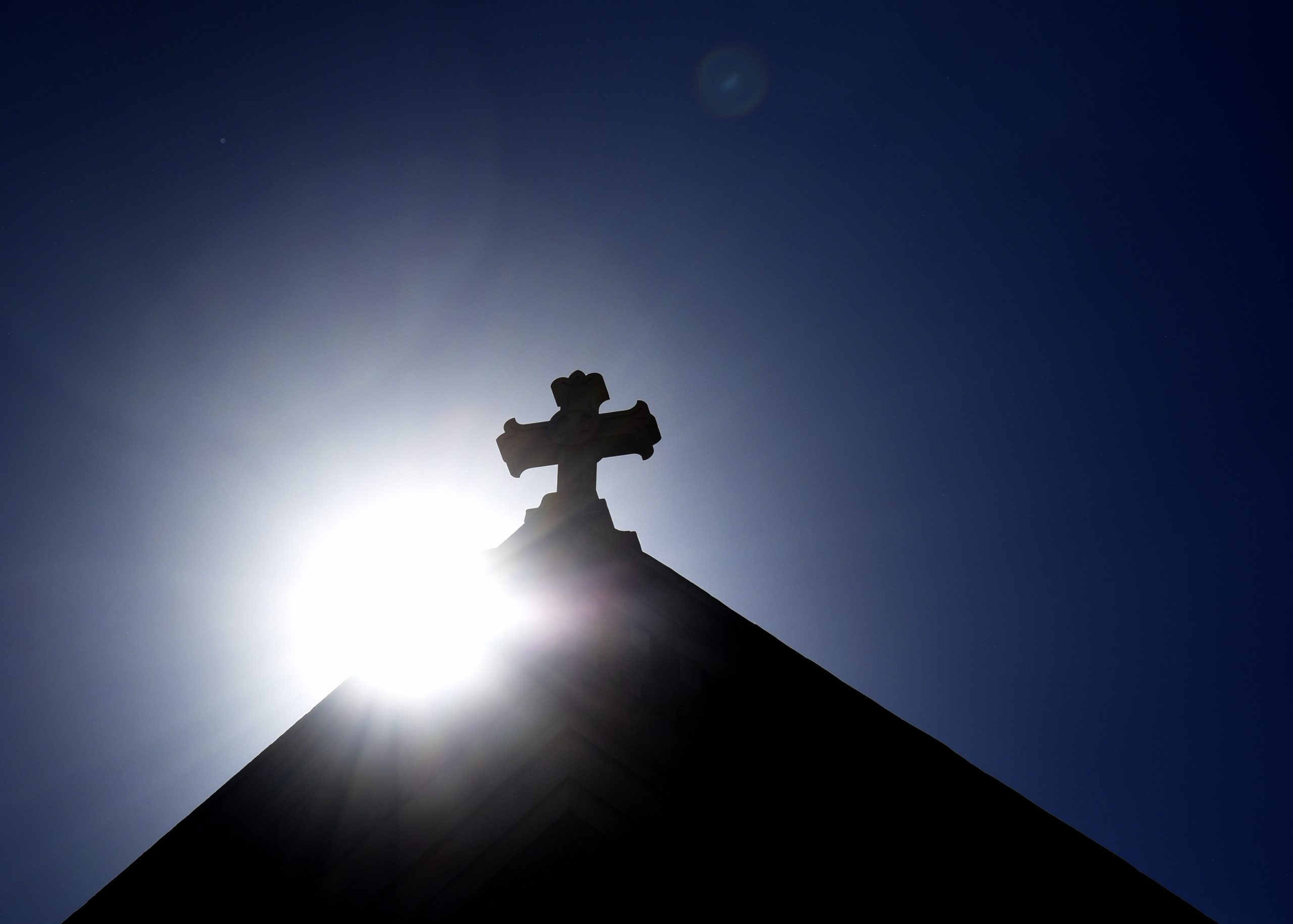World
Thousands Sign Christian Petition Against ICE Raids

A Growing Movement Opposes ICE Operations in Churches
Over 11,000 people have signed a petition by the Christian group Faithful America, urging an end to Immigration and Customs Enforcement (ICE) operations in churches. The petition argues that churches are sacred spaces where people should be able to worship and care for one another without fear of government intrusion or deportation. Faithful America emphasizes that allowing ICE to operate in churches infringes on religious freedom and disrupts the sanctuary these spaces provide to migrants and vulnerable communities. This movement gained momentum after the Department of Homeland Security (DHS) reversed a Biden administration policy that prohibited ICE agents from operating in or near sensitive locations, such as churches, schools, and hospitals. DHS claims the policy change is necessary to prevent criminals from hiding in these spaces, but advocates argue it threatens the safety and dignity of migrants who rely on churches for support.
The Policy Change and Its Implications
The DHS policy reversal has sparked widespread concern among faith groups and civil rights organizations. Previously, ICE agents required prior approval to make arrests in sensitive locations, except in urgent circumstances. The Biden administration had reinforced this policy, recognizing the importance of these spaces as havens for vulnerable populations. However, the Trump administration’s shift has removed these restrictions, allowing ICE to operate more freely in and around schools, hospitals, and places of worship. Proponents of the change argue it targets criminals who exploit these locations to evade law enforcement. However, critics warn that the policy creates fear and undermines the ability of churches to provide refuge and assistance to migrants, regardless of their legal status.
Churches as Sanctuaries for Migrants
Churches in the U.S. have long played a vital role in supporting migrants, offering food, clothing, shelter, and spiritual guidance. Many churches act as temporary shelters, providing essential resources to those in need. By allowing ICE operations in these spaces, advocates argue that the government is interfering with the sacred mission of religious institutions. Faithful America and other organizations contend that this intrusion violates religious freedom and discourages migrants from seeking help or attending worship services. The lawsuit filed by a coalition of faith leaders alleges that the policy fosters fear and restricts the ability of churches to fulfill their spiritual and humanitarian obligations.
Legal Challenges and the Broader Debate
The debate over ICE operations in churches has moved into the courtroom, with 28 Christian and Jewish organizations filing a federal lawsuit against the Trump administration. The suit claims that the policy infringes on religious freedom by creating an atmosphere of fear that discourages participation in church programs and services. Additionally, Pope Francis has condemned the Trump administration’s deportation policies, warning that targeting migrants based solely on their undocumented status strips them of their dignity and "will end badly." On the other hand, some supporters of the policy argue that it is narrowly focused on criminals, such as gang members and violent offenders, who pose a threat to public safety. However, opponents counter that the policy broadly impacts vulnerable individuals and undermines the principles of sanctuary and compassion that churches embody.
Mixed Reactions from Faith Leaders and Experts
Reactions to the policy change are divided, even among faith leaders and law enforcement officials. Myal Greene, president & CEO of World Relief, emphasizes the importance of religious liberty and warns that the policy scares families away from churches. Ben Marsh, a pastor in North Carolina, expresses skepticism about the practical impact of the policy, noting that few churches actually house migrants due to the challenges of providing long-term shelter. Retired ICE field office director John Fabbricatore explains that the policy change was not specifically aimed at increasing operations in schools and churches but rather at removing restrictions on ICE’s ability to operate in nearby neighborhoods. Tom Decker, a former ICE director in New York, questions the necessity of the policy, stating that churches and hospitals were never priority locations for arrests.
The Road Ahead: Legal Battles and Ethical Questions
The legal and ethical debate over ICE operations in churches is far from resolved. Faith-based groups and civil rights organizations are expected to continue challenging the policy in court, arguing that it infringes on religious freedom and harms vulnerable communities. Meanwhile, the Trump administration defends the policy as a necessary measure to enforce immigration laws and target criminals. As the legal battle unfolds, the broader ethical implications of the policy remain a contentious issue. Stories like that of Wilson Rogelio Velasquez Cruz, who was arrested outside a church in Georgia during a worship service, highlight the human cost of these enforcement actions. The outcome of this debate will have significant repercussions for the balance between national security, immigration enforcement, and the sacred role of churches as havens for those in need.











